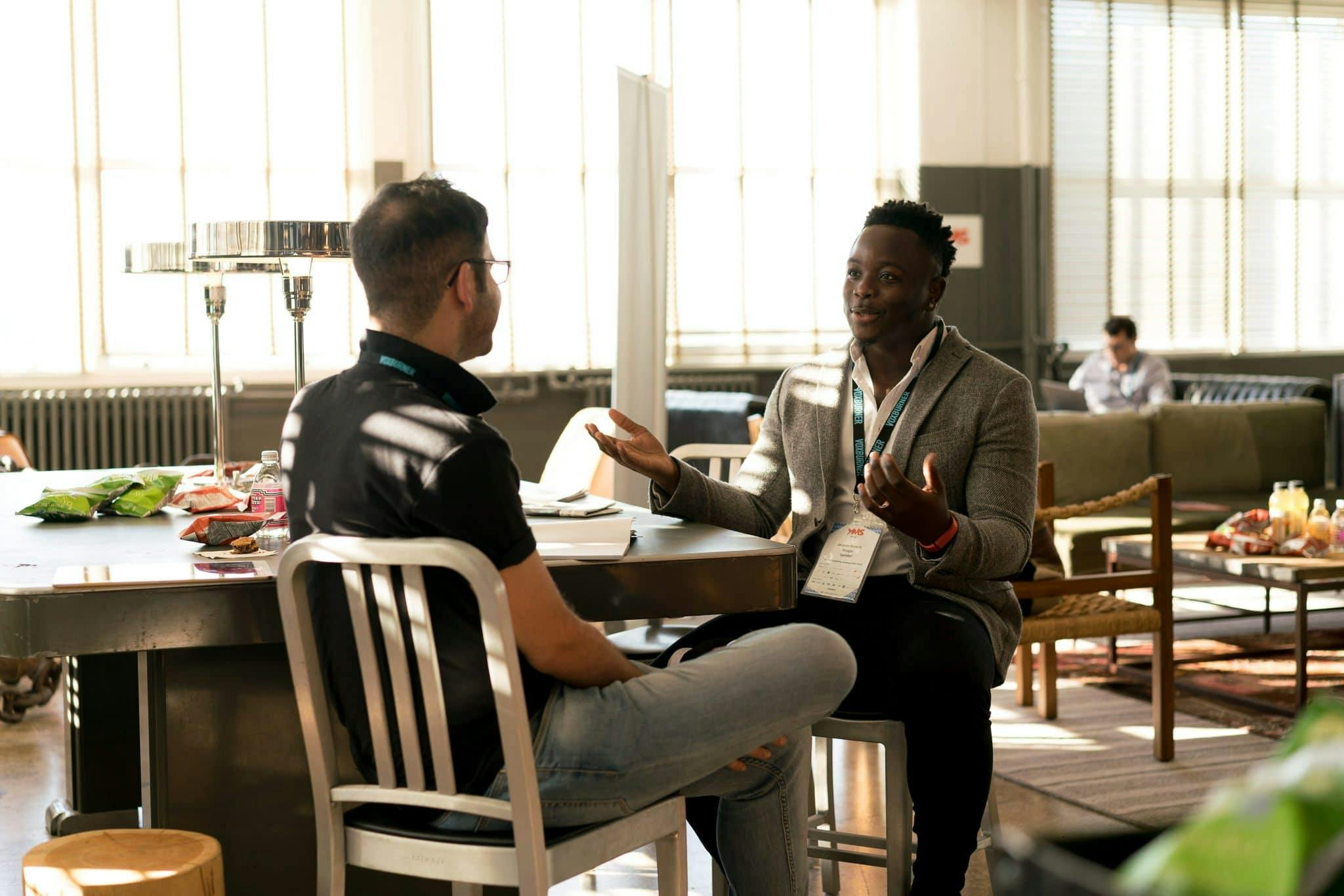
Does your data need a health check?
Take our free Data Health Assessment to evaluate your current data practices and discover ideas for improving your organization's data quality.

I love doing interviews, because when done well, they’re a great way to gather rich, detailed insights into a person’s story, experiences, thought processes, and ideas. Interviews do what surveys can’t, which is to fill in the “why” being someone’s perspective. But for interviews to go well, it’s important to know how to create a safe environment that will encourage your interview participant to share open and honest feedback- especially in cases where it maybe risky for them to do so.
So how do you do it, especially if you’re new tointerviewing? Here are five tips for quickly establishing trust and rapportbased on my decade of interview experience.
Often times, you're not just an interviewer, but you’re a facilitator of the process. We want to makeit as easy as possible for people to participate in your interviews so we getthe maximum number of participants. If they want to meet you at your office,great. Prefer virtual? Fantastic. If they want you to come to them, try to makeit work. Do they need transportation help? Do what you can to help them getfrom point A to point B. Translation services? Let’s get an interpreter in theroom.
Taking this kind of initiative to meet people where they are is a great first step in building trust and rapport, which are critical for successful interviews.
If you’re conducting the interview in person, try to find aquiet, private room with decent sound insulation. We don’t want everyone whopasses by to hear what’s being said. Plus, a quieter space makes for betterrecording, which you should be doing for analysis purposes (with permission, ofcourse). The same goes for virtual interviews. Your space should bequiet and free from distractions. Your pets are adorable, my pets are adorable, but you don’t want your cat climbing across your desk in the middle of a deep conversation!
Before you start the interview, let the person know the steps that you are taking to protect their privacy. Data privacy is always essential, but it is extra critical when interviewing during strategic planning processes or other projects where there is any perceived risk of retaliation What I mean by that is if a staff member has a lot of complaints about theirsupervisor’s management style, they may be less likely to be honest about theirconcerns if they think their supervisor might see the interview transcript.
So what can we do to ease people’s concerns?
Being transparent about the steps we take to protect people's identities is another critical step in quickly building a trusting relationship with an interviewee.
One of the hardest things about doing interviews is balancing letting people share their stories and ensuring that you cover all of yourquestions in your allotted time.It’s anxiety-inducing for sure, but over time, you’ll learn to read body language, notice patterns, and trust your instinctsto tell you when it’s time to redirect. But after 10+ years of practice, I do less interrupting and more letting people talk. Here’s why.
People have different ways of understanding the world andexpressing their thoughts and feelings about it. Some people are very direct indescribing their experiences, while others are nonlinear, full of similes andmetaphors, twists and turns. As I see it, my job is to hang on for the ride.
Also, I want whoever is with me to feel comfortable being their full selves during their time with me, and that means respecting all types of expression. Most times, people get to their point, and I just need to be patient. Plus, allowing people the time to express how they think about different situations can provide incredible data. And if I am running short on time, a gentle reminder about the original question usually does the trick.
I always invite interview and focus group participants to reach out to me afterwards if they have any questions, comments, or thoughts that they didn’t get a chance to share during the session or came up with after our session. Keeping the door open gives participants a second chance to share insights with you, and allows you to continue collecting data, just in a different format. When I worked on a DEI evaluation project a while back, I had a lot of neurodivergent participants take me up on this offer, so it’s a nice way to give people more options and build inclusivity into your practice as well.
So that’s it – five tips for building rapport, trust, and a comfortable interview environment. If you need more guidance or support for your next interview project, please send me an email at lindsay@the-data-coach.com.

Take our free Data Audit Checklist quiz to evaluate your current data practices and discover immediate improvement areas.
Take The Quiz